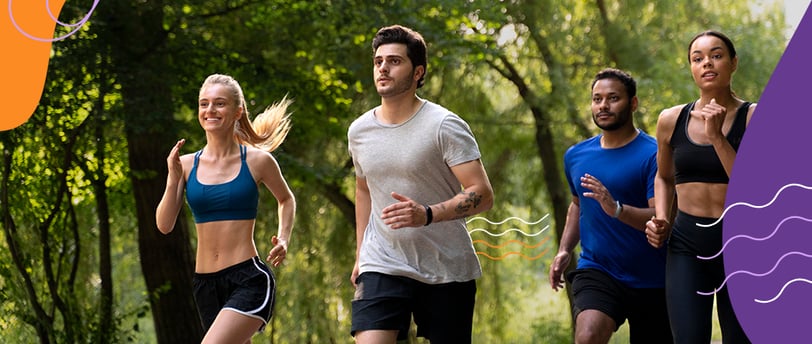Physical Activity Mental Health
The Role of Physical Activity in Mental Health
Living in Harmony Team
1/22/20253 min read


The Role of Physical Activity in Mental Health
In today's fast-paced world, where daily challenges and stress can cause high levels of anxiety, stress, and other psychological issues, physical activity stands out as a powerful ally for mental health. More than just promoting physical well-being, regular exercise significantly contributes to emotional balance, the prevention of mental disorders, and the improvement of overall quality of life.
In this article, we will explore how exercise influences mental health, the mechanisms that connect the body and mind, and how you can incorporate physical activity into your routine to reap its benefits.
Benefits of Physical Activity for Mental Health
Stress Reduction
Physical activity is an effective tool for relieving stress. During exercise, the body releases endorphins, known as "feel-good hormones," which promote feelings of pleasure and relaxation. Additionally, movement helps lower cortisol levels, the stress hormone.
Practical example: A 30-minute walk outdoors can provide almost immediate relief from accumulated stress.
Fighting Anxiety and Depression
Studies show that regular exercise can be as effective as medication for mild to moderate anxiety and depression. This is because exercise stimulates the production of serotonin, dopamine, and norepinephrine, neurotransmitters that regulate mood.
Tip: Activities like yoga and Pilates combine physical exercise with breathing techniques and mindfulness, providing double benefits.
Improved Sleep Quality
Regular exercise helps regulate the sleep cycle. Physical activity not only aids in falling asleep but also improves the quality of deep sleep, which is essential for physical and mental recovery.
Suggestion: Prefer morning or afternoon exercises. Exercising too close to bedtime can have the opposite effect due to increased energy.
Boosting Self-Esteem
Physical activity can increase self-esteem and confidence. Achieving fitness goals, even small ones, generates a sense of accomplishment and competence.
Example: Completing a short run or learning a new skill, such as swimming or dancing, can significantly boost self-esteem.
Encouraging Social Connection
Exercising in groups, such as gym classes, team sports, or running groups, promotes social interaction, which is crucial for mental health. Connecting with others alleviates isolation and strengthens social bonds.
Tip: If you prefer individual exercises, try trails or parks, where you can meet others with similar interests.
The Mechanisms of the Body-Mind Connection
Endorphin Release
Endorphins are neurotransmitters released during physical exercise that help reduce pain perception and promote feelings of pleasure and well-being.Inflammation Reduction
Chronic stress is associated with inflammation in the body, which can negatively affect the brain. Exercise helps reduce inflammatory markers, promoting more balanced mental health.Increase in Neuroplasticity
Exercise stimulates the production of a growth factor called BDNF (Brain-Derived Neurotrophic Factor), which supports the formation of new neural connections and improves cognitive function.
How to Start and Maintain a Physical Activity Routine
Choose Something You Enjoy
The best activity is the one you truly enjoy. It can be walking, swimming, dancing, playing sports, or even gardening.Start Slow
If you are sedentary, start with small sessions of 10 to 15 minutes per day and gradually increase.Set Realistic Goals
Setting achievable goals, like walking three times a week, helps maintain motivation.Include It in Your Daily Routine
Find specific times to exercise, such as before work, during lunch, or after work.Consider Professional Help
If you're unsure where to start, consult a physical education professional for guidance.
Conclusion
Physical activity is a fundamental pillar for mental health. From stress reduction to increased self-esteem, the benefits are undeniable. Incorporating movement into your routine doesn't have to be complicated or require sophisticated equipment; even small changes can yield big results.
So, how about taking the first step today? Choose an activity you enjoy, put on your sneakers, and start transforming your mind and body. Your mental health will thank you!
If you already practice exercise, share in the comments how it impacts your mental health. Let's inspire more people to get moving together!
Want to know more about living in balance? Follow Living in Harmony and discover new ways to take care of your body and mind.
Living in Harmony - @primeconexao
Tips for a balanced lifestyle.
Prime Conection
contact@primeconexao
© 2024. All rights reserved.
primeconexao360@gmail.com
